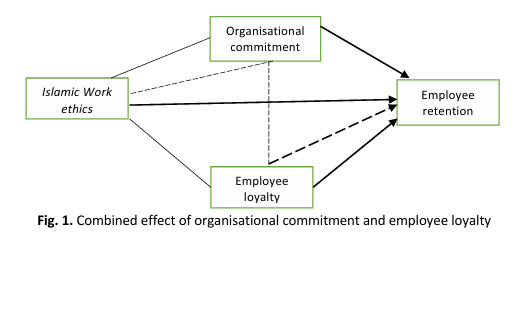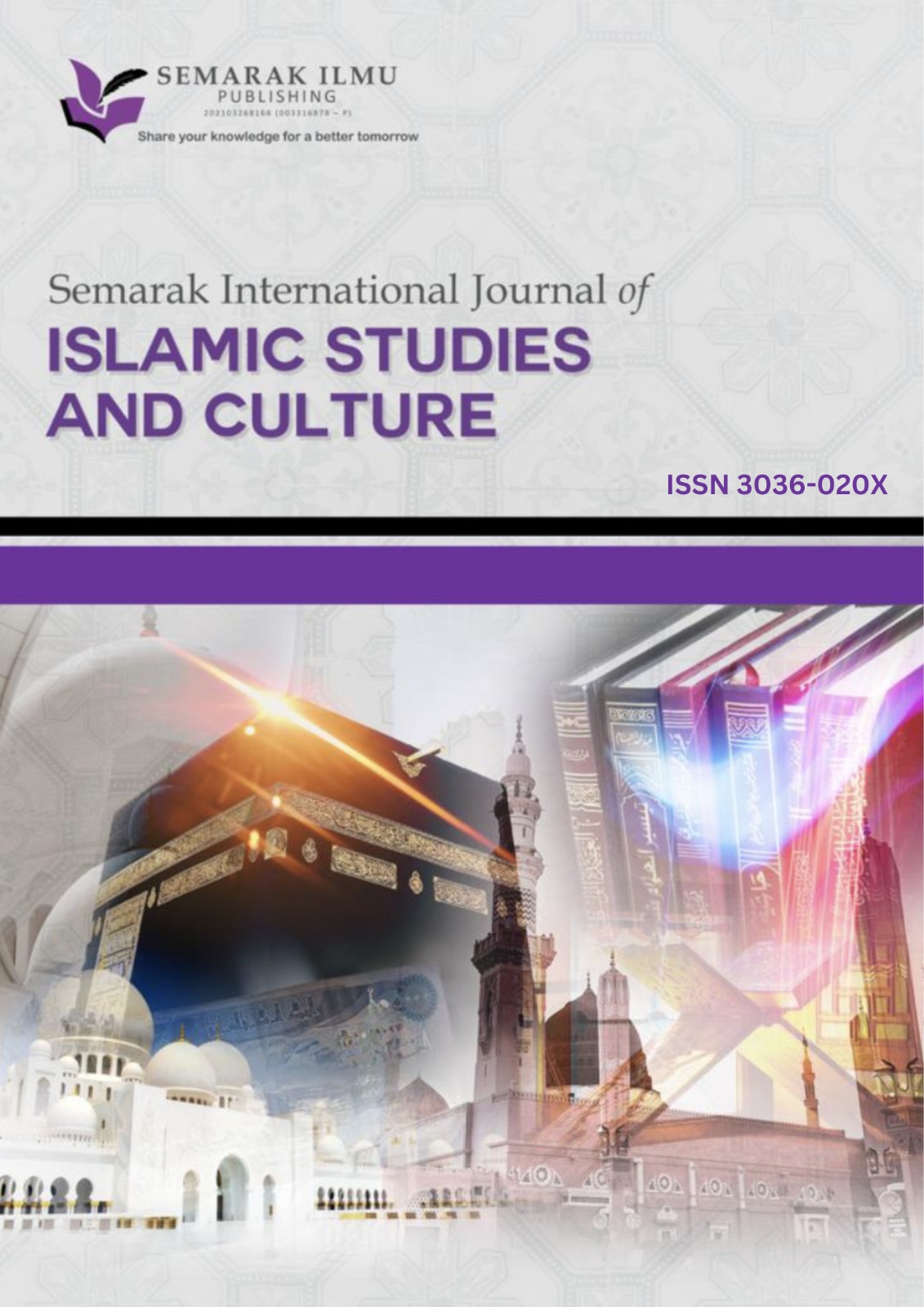Does Islamic Work Ethics Matter? A Serial Mediation Study through Organizational Commitment and Employee Loyalty
DOI:
https://doi.org/10.37934/sijisc.5.1.5468bKeywords:
Employee retention, Islamic work ethics, employee loyalty, organisational commitment, banking employeesAbstract
Purpose of this study is to examine the impact of Islamic work ethics on employee retention of banking employees in banks of Azad Jammu & Kashmir, Pakistan. Further, mediation relationships through organisational commitment and employee loyalty were also tested. Additionally, a serial mediation through “Islamic work ethics => organisational commitment => employee loyalty => employee retention” was also tested. In the present study, 347 banking employees working at managerial level positions participated. The sample size was calculated through the G power method, while the sampling technique was purposive. Data was analysed through SPSS and smart-PLS. The findings support all direct hypotheses i.e., Islamic work ethics to organisational commitment, employee loyalty and employee retention. Further, mediation relationships were also confirmed through organisational commitment and employee loyalty. However, serial mediation was not confirmed. Due to the nature of operations, banks need energetic employees who can participate actively in work activities. The implementation of Islamic work ethics can enable banks to improve their employees’ commitment, loyalty, and employee retention which will benefit the organisation in the long term through improved performance. This study is different from the previous literature as none of the studies has tested the mediation effects of organisational commitment and employee loyalty previously. Further, the role of Islamic work ethics in improving employee retention has been less explored previously. This study has tested this model with the support of Divine Command Theory (DCT) and Theory of Reasoned Action (TRA) which is another contribution to the literature.










